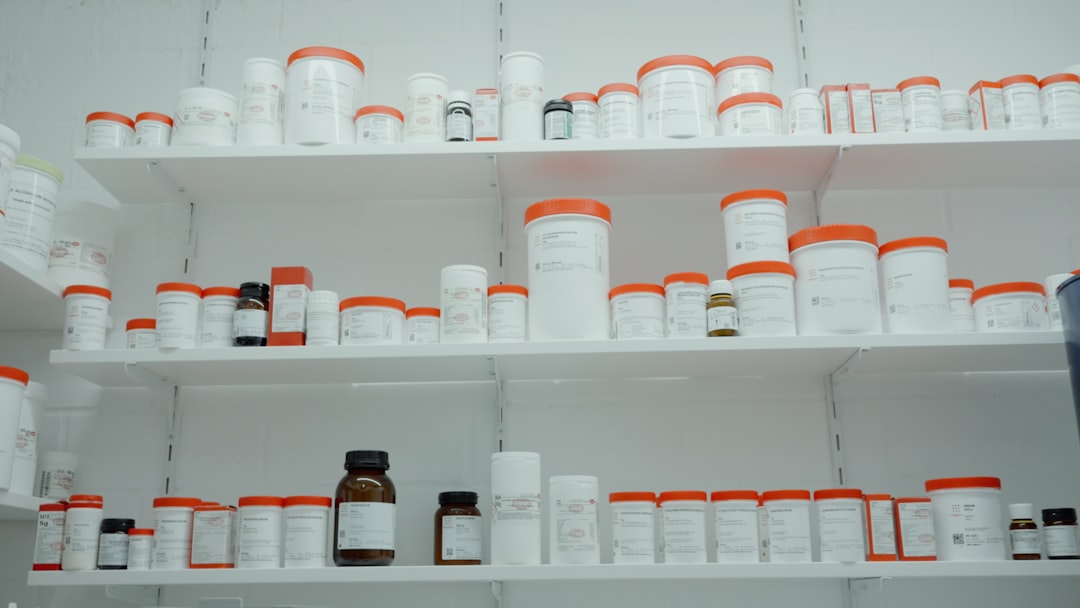
Tirzepatide Shortages Got You Stuck? Here's What You Need to Know
Tirzepatide (Mounjaro/Zepbound) is basically impossible to find right now. Your doctor prescribed it months ago. You've been on backorder lists. Every pharmacy you call says "no stock, try next month." Meanwhile, you're stuck waiting while dealing with weight management or diabetes issues that need treatment NOW, not eventually.
Here's where it gets complicated: compounding pharmacies CAN make tirzepatide when there's a commercial shortage. But there's a LOT of sketchy stuff happening online, random "telehealth" companies selling compounded tirzepatide with zero medical oversight, questionable quality, and prices that seem too good to be true (because they are). You need to understand what's legit vs what's dangerous.
This guide covers the real deal about tirzepatide compounding, what's legal, what's safe, what questions to ask, and how to protect yourself from scams. Because getting effective treatment matters, but so does not poisoning yourself with random stuff from the internet.
compounding pharmacies follow strict quality and safety standards to ensure medication efficacy and safety.
Regulatory Framework and FDA Guidance
Tirzepatide compounding operates within a complex regulatory framework overseen by the FDA, state boards of pharmacy, and other regulatory agencies. The FDA provides specific guidance on when compounding of tirzepatide may be appropriate, particularly in relation to drug shortage situations and patient access needs.
Key Regulatory Considerations:
- • FDA drug shortage status affects compounding availability
- • State pharmacy board regulations govern compounding practices
- • USP standards for compounding quality and safety
- • Requirements for sterile compounding facilities
- • Patient-specific prescription requirements
- • Quality assurance and testing protocols
The regulatory landscape for tirzepatide compounding can change based on commercial drug availability and FDA determinations about shortage status. Patients should work with healthcare providers and licensed compounding pharmacies to ensure compliance with current regulations and access to safe, effective medications.
Quality Standards and Safety Protocols

Professional tirzepatide compounding pharmacy services must adhere to rigorous quality standards and safety protocols to ensure that compounded medications meet appropriate standards for purity, potency, and sterility. These standards are important for patient safety and treatment effectiveness.
Quality Assurance Standards Include:
- • USP Chapter 797 sterile compounding standards
- • Clean room facilities with appropriate air filtration
- • Sterility and endotoxin testing protocols
- • Potency verification and stability testing
- • Personnel training and qualification requirements
- • Documentation and record-keeping systems
- • Regular facility inspections and compliance audits
Patients should verify that their compounding pharmacy follows appropriate quality standards and maintains proper accreditation. Licensed compounding pharmacies invest significantly in facilities, equipment, and training to ensure the highest quality standards for compounded medications.
Patient Considerations and Medical Supervision
Patients considering compounded tirzepatide should work closely with qualified healthcare providers who can assess their individual medical needs, monitor treatment response, and ensure appropriate medical supervision throughout therapy. Compounded medications require the same level of medical oversight as commercial products.
Healthcare providers evaluate multiple factors when considering compounded tirzepatide, including patient medical history, treatment goals, commercial drug availability, and individual response to therapy. This complete assessment ensures that compounded medications are appropriate for each patient's specific situation.
Medical Supervision Requirements:
- • Complete medical evaluation and diagnosis
- • Assessment of commercial drug alternatives
- • Regular monitoring of treatment response and safety
- • Coordination between healthcare provider and compounding pharmacy
- • Patient education about proper administration and storage
- • Ongoing evaluation of treatment necessity and effectiveness
Choosing a Qualified Compounding Pharmacy
Selecting a qualified tirzepatide compounding pharmacy requires careful evaluation of their credentials, facilities, quality standards, and regulatory compliance. Patients should research compounding pharmacies thoroughly to ensure they meet the highest standards for safety and professionalism.
Professional compounding pharmacies specializing in complex medications like tirzepatide typically maintain advanced facilities, specialized equipment, and highly trained staff. They should be transparent about their processes, quality measures, and regulatory compliance.
Qualifications to Look For:
- • State pharmacy board licensing and good standing
- • PCAB (Pharmacy Compounding Accreditation Board) accreditation
- • USP compliance and quality certifications
- • Specialized sterile compounding facilities
- • Experienced compounding pharmacists and technicians
- • Complete quality assurance programs
- • Patient education and support services
Storage, Handling, and Administration
Compounded tirzepatide medications require specific storage, handling, and administration procedures to maintain their stability, potency, and safety. Patients must receive complete education about proper medication management for best treatment outcomes and prevent medication degradation.
Professional compounding pharmacies provide detailed instructions for medication storage, preparation, and administration. These instructions may differ from commercial products and require careful attention to ensure proper medication handling throughout the treatment period.
Storage and Handling Guidelines:
- • Refrigerated storage requirements (typically 2-8°C)
- • Protection from light and temperature fluctuations
- • Proper reconstitution procedures if applicable
- • Sterile injection techniques and safety protocols
- • Beyond-use dating and expiration considerations
- • Safe disposal of unused medications and supplies
Insurance Coverage and Cost Considerations
Insurance coverage for compounded tirzepatide can vary significantly depending on individual insurance plans, medical necessity determinations, and current drug shortage status. Patients should work with their healthcare providers and compounding pharmacies to understand coverage options and potential costs.
Professional compounding pharmacies often assist patients with insurance authorization processes and can provide information about payment options. Understanding the financial aspects of compounded medications helps patients make informed decisions about their treatment options.
Cost and Coverage Factors:
- • Insurance plan formulary coverage for compounded medications
- • Prior authorization requirements and medical necessity documentation
- • Commercial drug availability and shortage status
- • Compounding complexity and specialized requirements
- • Patient assistance programs and payment options
- • Comparison with commercial product costs when available
Monitoring and Follow-up Care
Patients using compounded tirzepatide require regular monitoring and follow-up care to assess treatment effectiveness, monitor for side effects, and ensure continued appropriateness of therapy. This monitoring should be coordinated between healthcare providers and compounding pharmacies.
Professional compounding pharmacies often provide ongoing support services to help patients manage their therapy effectively. This support may include medication counseling, administration training, and coordination with healthcare providers for optimal treatment outcomes.
Ongoing Care and Support:
- • Regular effectiveness and safety monitoring
- • Side effect assessment and management
- • Medication counseling and education services
- • Coordination with prescribing healthcare providers
- • Treatment plan adjustments based on response
- • Transition planning when commercial products become available
Future Considerations and Industry Trends
The landscape of tirzepatide compounding continues to evolve based on commercial drug availability, regulatory changes, and advances in compounding technology. Patients and healthcare providers should stay informed about these developments to ensure continued access to safe and effective treatment options.
Professional compounding pharmacies adapt to changing regulatory requirements and industry standards while maintaining their commitment to quality and patient safety. This adaptability ensures continued access to specialized medications when commercial products are unavailable or inappropriate for specific patient needs.